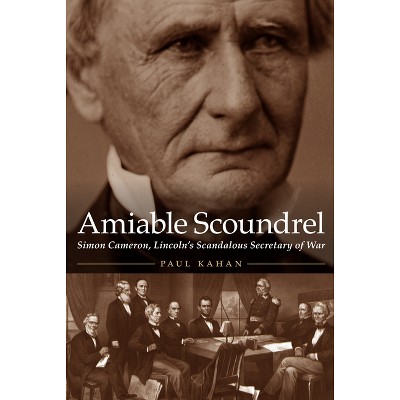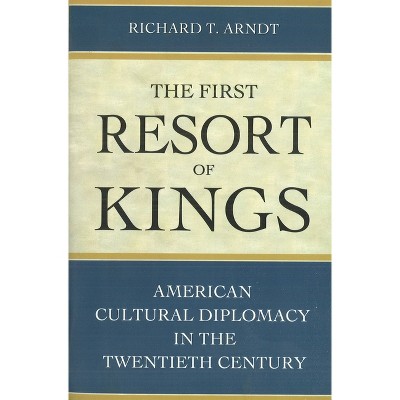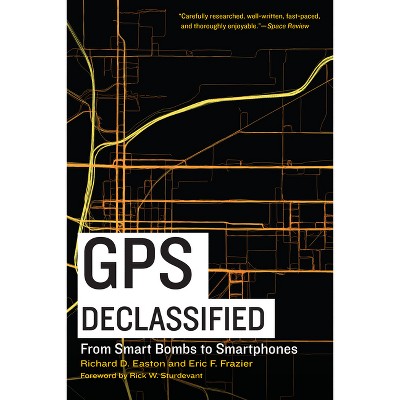Sponsored

Predicting the Winner - by Ira Chinoy (Hardcover)
$23.49Save $15.46 (40% off)
In Stock
Eligible for registries and wish lists
Sponsored
About this item
Highlights
- Winner of the Ray Hiebert History of Journalism Published Work AwardWinner of the 2025 Eugenia M. Palmegiano Prize in the History of Journalism The history of American elections changed profoundly on the night of November 4, 1952.
- About the Author: Ira Chinoy is an associate professor at the Philip Merrill College of Journalism at the University of Maryland, where he founded and directs the Future of Information Alliance.
- 384 Pages
- Political Science, Political Process
Description
About the Book
Predicting the Winner is a riveting narrative about election night 1952, when computers were used for the first time to predict winners from early returns and the results were launched live and untested on the newest medium for news: television.Book Synopsis
Winner of the Ray Hiebert History of Journalism Published Work Award
Winner of the 2025 Eugenia M. Palmegiano Prize in the History of Journalism
Review Quotes
"This title showcases Chinoy's capacity for meticulous detail, fascinating research, and strong sources. Readers who study the intersection of politics and technology will relish this book."--Library Journal, starred review
"A new history of computer forecasting in national elections is a timely read as November approaches. . . . Chinoy's background as a journalist prepared him for the digging required of a historical researcher. . . . His research and writing skills are evident throughout the text. He is a first-class prose stylist who writes with the gravitas of a researcher who knows his subject inside and out."--Clayton Trutor, nextavenue.org-- (4/15/2024 12:00:00 AM)
"An appealing deep dive into the intersecting history of journalism, technology, and electoral politics."--Publishers Weekly
"A fascinating, thoroughly researched account of how the electronic computer muscled its way into our consciousness during the 1952 presidential election, when both the computer and the medium of television were new. Some of the ways established veteran journalists wrestled with their relationship to the 'giant brain' are amusing, but in light of recent events, perhaps the joke is on us. You are guaranteed to have fun reading it."--Paul Ceruzzi, coauthor of A New History of Modern Computing
"Election night in the United States is the most prominent and fraught intersection of politics, technology, and culture. Ira Chinoy's deeply researched and beautifully narrated account of computers and television in their shared infancy explains how this came to be and why it is so important to understand."--Robert Friedel, author of A Culture of Improvement: Technology and the Western Millennium
"Election night on television is dominated by touch-screen maps and other technological wizardry. Predicting The Winner takes us back to when computers made their infamous debut in forecasting the next president on national television. Ira Chinoy uses the researching and reporting skills that won him multiple Pulitzer Prizes to dig out this important but mostly untold moment."--Mike Conway, author of Contested Ground: "The Tunnel" and the Struggle over Television News in Cold War America
"In Predicting the Winner, Pulitzer Prize-winning investigative-journalist-turned-historian Ira Chinoy tells the hair-raising story of the first widely televised U.S. presidential election, in 1952. But it wasn't only televised. It was computerized. With predictions made by robots and whirring, blinking, flashing machines. Based on stunning archival research, the tale offers a vital parable for our times."--Jill Lepore, author of These Truths: A History of the United States
"The year 1952 was an inflection point in American culture--the introduction of computers, projections, and even TV news into our election nights. In this insightful and immensely readable telling of the tale, historian and journalist Ira Chinoy explains how the innovations came about and how they are relevant to our current times. This is a book for anyone who cares about politics, thinks about technology, and wants to know where we are going by understanding where we have been."--Tom Rosenstiel, coauthor of The Elements of Journalism
"This well-researched book is a road map for practices that served as a foundation for election-night reporting up to our own time. And perhaps most important, it shows the challenges faced by pollsters and prognosticators when predicting how an election night will turn out, even in today's world of AI and vastly more powerful predictive models than those first tried out decades ago."--Jack Speer, newscaster, NPR
About the Author
Ira Chinoy is an associate professor at the Philip Merrill College of Journalism at the University of Maryland, where he founded and directs the Future of Information Alliance. He is a former investigative reporter for the Washington Post, where he also served as director of computer-assisted reporting. Chinoy was part of two teams that won Pulitzer Prizes for reporting and has won the George Polk Award and other top journalism awards.Dimensions (Overall): 9.0 Inches (H) x 6.38 Inches (W) x 1.4 Inches (D)
Weight: 1.66 Pounds
Suggested Age: 22 Years and Up
Number of Pages: 384
Genre: Political Science
Sub-Genre: Political Process
Publisher: Potomac Books
Theme: Campaigns & Elections
Format: Hardcover
Author: Ira Chinoy
Language: English
Street Date: May 1, 2024
TCIN: 90764528
UPC: 9781640125964
Item Number (DPCI): 247-16-0162
Origin: Made in the USA or Imported
If the item details aren’t accurate or complete, we want to know about it.
Shipping details
Estimated ship dimensions: 1.4 inches length x 6.38 inches width x 9 inches height
Estimated ship weight: 1.66 pounds
We regret that this item cannot be shipped to PO Boxes.
This item cannot be shipped to the following locations: American Samoa (see also separate entry under AS), Guam (see also separate entry under GU), Northern Mariana Islands, Puerto Rico (see also separate entry under PR), United States Minor Outlying Islands, Virgin Islands, U.S., APO/FPO
Return details
This item can be returned to any Target store or Target.com.
This item must be returned within 90 days of the date it was purchased in store, shipped, delivered by a Shipt shopper, or made ready for pickup.
See the return policy for complete information.
Trending Non-Fiction


Highly rated
$19.31
was $20.98 New lower price
Buy 1, get 1 50% off select books & accessories
4.1 out of 5 stars with 55 ratings

$19.58
MSRP $29.00
Buy 1, get 1 50% off select books & accessories
4.6 out of 5 stars with 12 ratings

$4.59
MSRP $7.99
Buy 1, get 1 50% off select books & accessories
4.8 out of 5 stars with 118 ratings

$6.20
MSRP $10.95
Buy 1, get 1 50% off select books & accessories
4.8 out of 5 stars with 33 ratings

$7.09
MSRP $9.99
Buy 1, get 1 50% off select books & accessories
4.9 out of 5 stars with 45 ratings





